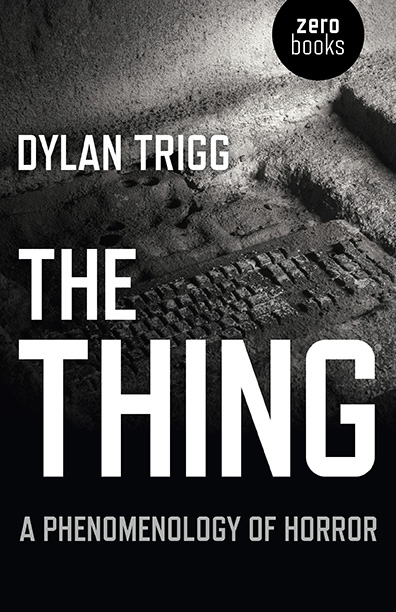Thing, The
Phenomenology redefined through body horror.

Phenomenology redefined through body horror.
Phenomenology redefined through body horror.
Film & video, Horror & supernatural, Phenomenology
What is the human body? Both the most familiar and unfamiliar of things, the body is the centre of experience but also the site of a prehistory anterior to any experience. Alien and uncanny, this other side of the body has all too often been overlooked by phenomenology. In confronting this oversight, Dylan Trigg’s The Thing redefines phenomenology as a species of realism, which he terms unhuman phenomenology. Far from being the vehicle of a human voice, this unhuman phenomenology gives expression to the alien materiality at the limit of experience.
By fusing the philosophies of Merleau-Ponty, Husserl, and Levinas with the horrors of John Carpenter, David Cronenberg, and H.P. Lovecraft, Trigg explores the ways in which an unhuman phenomenology positions the body out of time. At once a challenge to traditional notions of phenomenology, The Thing is also a timely rejoinder to contemporary philosophies of realism. The result is nothing less than a rebirth of phenomenology as redefined through the lens of horror.
Click on the circles below to see more reviews
Dylan Trigg's The Thing: A Phenomenology of Horror takes up the central challenge of contemporary philosophy - grappling with the world as indifferent to human constructs and concepts. Trigg's analysis suggests to us that phenomenology - too often regarded as a philosophy of the human par excellence - is uncannily suited to thinking the world-without-us. Husserl writing horror fiction is the spirit of this study. ~ Eugene Thacker, author of In The Dust Of This Planet
Dylan Trigg's The Thing is a sophisticated melding of philosophy, literary criticism, and film criticism that underscores his major thesis that 'the horror of the cosmos is essentially the horror of the body.' Its discussions of the fiction of H. P. Lovecraft, the films of John Carpenter and David Cronenberg, and other texts and films allow us to look at these works from a fascinating new perspective while shedding light on humanity's fragility in a boundless cosmos. ~ S. T. Joshi